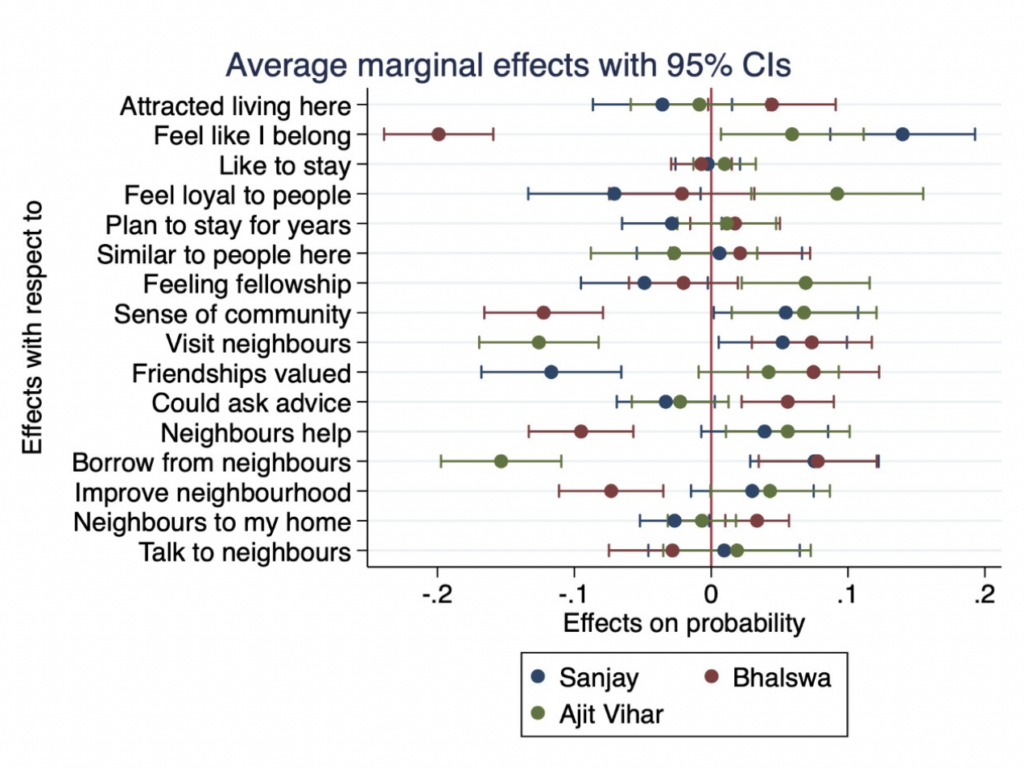Health and Well-Being
Social cohesion can empower communities to support each other through residential bonds, create coordinated actions, and networks for a collective good. Research has shown that neighbourhoods with higher levels of social cohesion can be beneficial to the well-being of their communities. Well-being is key to the creation and maintenance of healthy and productive societies. High levels of well-being have been shown to result in better health and longevity. Low levels of neighbourhood social cohesion and trust are associated with stress, depression, and anxiety.
Subjective Well-being and Community Cohesion
We examine the relationships between subjective well-being (SWB) and neighbourhood cohesion, taking into consideration the socioeconomic backgrounds of the households as well as levels of trust in two different informal settlement types.
The Neighbourhood Cohesion (NCI) is used in this research to measure social cohesion. All 16 items on the NCI were measured on a 5 point Likert scale with 5 (strongly agree) to 1 (strongly disagree).

The figure above shows averaged marginal component effect (ACME). The dots indicate the point estimates and the lines 95% confidence intervals for the probability of each item on the NCI. Residents in Bhalswa (resettlement) are likely NOT to feel that they belong to their neighbourhood. There is also a likelihood that residents from Bhalswa lack a sense of community and feel that neighbours would NOT help them in the event of an emergency. Conversely, residents living in Sanjay (JJ/slum) and Ajit Vihar (unauthorised have a sense of belonging to their community. Those living in Ajit Vihar also have a greater likelihood of feeling loyal to their neighbours, feel they are able to ask their neighbours for help and have a desire to improve their neighbourhood. Only in Bhalswa does the length of time residents have lived in the community have a significantly negative effect on their subjective wellbeing.




